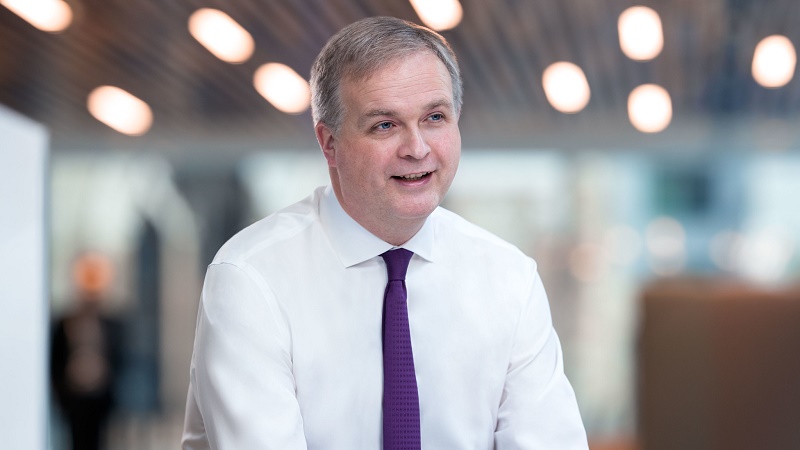Euan Munro will have to turn his attention to manager retention and building Newton Investment Management’s core equity and fixed interest proposition if he wants to restore the “lost” fund brand into a household investment name, commentators have said.
BNY Mellon Investment Management unveiled last week it had nabbed Aviva Investors boss Munro to take the reins of its UK funds business Newton.
Much like his arrival at Aviva Investors in 2014, the SLI Gars architect joins Newton at a crossroad for the business. The fund group has been struggling to hold onto its heavy hitters, with global income manager Nick Clay among the biggest recent casualties, and has struggled to grow assets above £45bn.
Chelsea Financial Services managing director Darius McDermott says two decades ago Newton was “a real big player in core competencies across the retail space” with well-regarded UK equity funds and strong global and Asian income franchises. But in recent years the fund group “has rather lost its way”.
Losing Nick Clay was ‘pretty careless’
McDermott highlights manager retention as one of Newton’s biggest issues.
In December 2015 it lost James Harries, the original face of its global income franchise, to Troy Asset Management after losing Asian Income star Jason Pidcock to Jupiter months earlier.
Last year proved to be another painful year of departures as Harries’ successor Clay defected to RWC in March, taking the rest of the three-strong global income team with him.
Later in the year UK income manager Emma Mogford exited for Premier Miton, while global emerging markets manager Rob Marshall-Lee jumped ship to Odey Asset Management.
McDermott describes losing Clay, the manager of a £10bn franchise, as “pretty careless”. While Marshall-Lee was less well-known, his £286.3m fund was consistently top quartile thanks to his “out and out growth style,” McDermott says.
“To lose two of your better performing strategies and decent assets, it just doesn’t send the right message to the market.”
See also: BNY Mellon fund faces more disruption as RWC touts near identical mandate for Nick Clay launch
A BNY Mellon IM spokesperson pointed out Newton’s 67-strong investment team is larger now than it was at the end of 2019.
It nabbed Louise Kernohan from Aberdeen Standard Investments in November to co-manage its UK Equity and UK Opportunities funds. The month before Paul Birchenough and Ian Smith joined from Axa Framlington to replace Marshall-Lee on Newton’s global emerging markets and Asian equities strategies.
Hires from 2019 include Hermes sustainable investment head Andrew Parry and Ilga Haubelt who became head of equity opportunities following a restructure of Newton’s equity desk.
Newton lost in a ‘mess of brands’
As Newton has seen key managers and franchises fall by the wayside it has struggled to retain a separate identity under the BNY Mellon IM umbrella, says AJ Bell head of active portfolio management Ryan Hughes.
In 2019 BNY Mellon IM announced its subsidiary Newton and Insight brands would be dropped from £27.3bn worth of retail funds in favour of the parent group branding.
This has created “a bit of a mess of brands,” Hughes says.
“Back in the day Newton was a household investment name. People knew what it was, what they stood for, how they manage money. And sadly, over the years, I think that’s got a little bit lost.”
AJ Bell currently doesn’t hold or have a buy rating on any of BNY Mellon IM’s funds. The last strategy it held was Clay’s fund, which it promptly sold the day of his departure. Hughes says he hasn’t spoken to the new global income managers subsequently.
Euan Munro ‘knows his way around the market’
The fund selectors Portfolio Adviser spoke to largely viewed Munro’s appointment as a positive for Newton, despite some being underwhelmed by his turn as Aviva Investors CEO.
Under Munro’s watch assets under management more than doubled from £246bn at the end of 2014 to £552bn by HY20.
Newton has struggled to attract assets over a similar time frame. At the end of 2015 average AUM at the BNY subsidiary was at £45.2bn, according to filings from Companies House. While this hit £48.5bn in 2017, it fell back down to £44.7bn in 2018 and further still in 2019 to £42.2bn.
Hughes says: “Aviva is obviously one of the UK’s biggest businesses, so to come from there he knows his way around the market and is an experienced investor going back to his days at Standard Life. So, there’s definitely good pedigree there to lead from a position of strength.”
Munro is also known for being a “great people’s person”, McDermott says, which is “obviously very important as the leader of a business”.
“The future is definitely brighter,” he thinks. “It was a tough year for Newton in 2020. They have had a lot of manager changes and that needs some stability.”
Investment performance at Aviva Investors fell by the wayside
Overall Hughes says he was “a little bit underwhelmed” by Munro’s performance at Aviva Investors, which he views as having similar problems to Newton from an investment perspective.
Aviva Investors is a “massive business but it comes back to that problem of what is it? What are those one or two things you’d really say it stands out for? It’s a decent fixed interest manager but you wouldn’t say it’s a standout and on the equity side of things. It’s a bit hit and miss.”
Willis Owen head of personal investing Adrian Lowcock agrees, stating despite Munro’s efforts Aviva Investors is still “in a transitional phase”. But he thinks Munro will have an easier time reinvigorating Newton.
“That was a big ship to turn around at Aviva and whilst it made some inroads, I think that you probably needed several leaders to complete the job. Whereas at Newton there’s probably less of a big challenge – there’s a strong brand there and it’s better known in the retail fund management space.”
SLI Gars architect unlikely to touch BNY Mellon Real Return fund
Commentators agree that building out a core range of propositions should be top of Munro’s to-do list at Newton before restructuring other areas of the business.
“If you’re going to be a big player in the asset management space, that means you’ve got to get your core equity and fixed interest right,” Hughes says.
Here McDermott thinks Munro’s investment background in fixed income could prove advantageous.
Newton has a handful of fixed income funds, including fixed income head Paul Brain’s £2.3bn Global Dynamic Bond fund, but McDermott says BNY Mellon IM’s Insight brand is more high profile in this area.
Despite Munro’s past expertise in setting up absolute return businesses, first at Standard Life Investments and then Aviva Investors, it is unlikely he will mess with Newton’s Real Return fund, Lowcock reckons.
Despite racking up £1.2bn worth of redemptions last year, according to data from Morningstar, the BNY Mellon Real Return fund is by far and away the biggest vehicle in the BNY Mellon IM stable with £5.5bn in assets. Performance has been consistently stronger than the IA Targeted Absolute Return sector, with the fund up 21.0% over three years versus the average fund’s gains of 3.9%, data from Trustnet shows.
Lowcock says the fund is one of the few Newton products that still stands out.
“What we need to see is a change in how Newton promotes individual funds,” Lowcock says. “Apart from Suzanne Hutchins, the profiles of a lot of their fund managers are perhaps not out there as much as it has been in the past though that’s difficult to do in a lockdown.”










